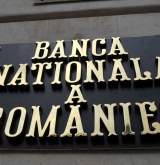“To make it perfectly clear, I wish to define in the first place what the following lessons don’t refer to. Firstly, they don’t address to shorter or longer economic cycle issue, and don’t suggest that a crisis is not closing an economic loop. Secondly, don’t expect to find the answer to whether we could ever avoid a financial crisis or not”.
1. A low inflation rate is not a condition to secure a long-term financial stability. The past experiences seem to confirm that inflation is the core source of financial instability. Usually, the episodes of high inflation corresponded with severe financial instability and crises in the banking industry, or they were followed by recession, resulted from actions to stabilize inflation.
2. At a certain point, regulation and oversight are outpaced by the market. The markets always seem to find the pathway to innovation as long as the economic agents are always in a race to meet the real needs. Innovations spur efficiency; hence the innovation process will never end. Not even the administrative barriers could put an end to market’s dig for solutions to meet demand. A clear example was when NBR attempted to slow down the frantic pace of foreign currency lending. We used administrative barriers, but their effectiveness proved to be narrow. Moreover, we found that their side effects surfaced the benefits.
3. Europe suffers from a lack of institutions. This fact is comprehensively outlined in de Larosière report. In the chapter dedicated to policy and regulatory repair in financial regulation and supervision in the EU, it is proposed a reform with focus on two aspects: macro and micro-prudential supervision.
The reports finds the formation of a new group, to replace the current Banking Supervision Committee (BSC) of the ECB, called the European Systemic Risk Council (ESRC). Council (ESRC) should be set up under the auspices and with the logistical support of the ECB. Its task will be to form judgments and make recommendations on macroprudential policy, issue risk warnings, compare observations on macro-economic and prudential developments and give direction on these issues.
4. Wage incentives in private companies are not adequately linked to risk management. The connection between the wage incentives and risk management is not always obvious.
5. People seem to forget about the likelihood of crisis outburst in times of prosperity and fail to take crisis management actions. The major financial pressures as well as financial crises are rare events. The scarcity of unwanted events comes with a cost, though.
6. IMF gained a major role in battling the crisis and it was criticized for not forecasting the Asian crisis. Few years ago many analysts were seeing a sharp decline of IMF role in current market conditions. Today’s crisis however seems to ‘reinstate’ the International Monetary Fund. Its funds were raised recently in an effort to cope with the requests from various countries for financial aid and technical assistance.
7. The expansionist measures must be associated with exist strategy from the beginning. The past experiences showed us that expansionist measures to weather crisis leave a deep imprint on inflation.
8. It is paramount to avoid macroeconomic imbalances and to follow a sustainable growth trend backed by structural reforms. This lesson applies especially to emerging economies.
9. Adopting the euro currency cannot replace the adjustment policies. This lesson became more obvious once with the installation of economic crisis in emerging economies. As long as the local currency rallied until the summer of 2007, the adoption of euro currency was not on economic agents’ agenda.
Citeste si:
Calculator Salariu: Află câți bani primești în mână în funcție de salariul brut »
Te-ar putea interesa și:


















































































![HR [PLAY] Tech Workout - 11...](https://www.wall-street.ro/image_thumbs/thumbs/973/973fe0a3888d417feff63de42e814180-260x260-00-65.jpg?v=1714141977)









